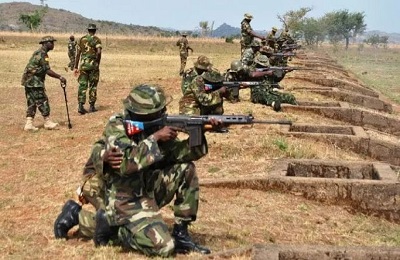ABUJA – Nigerian Air Force operations have intensified across the North Central region with the deployment of additional fighter jets and surveillance aircraft under Operation Whirl Stroke, targeting bandit networks operating across Benue, Nasarawa, and Taraba States.
Air Commodore Ehimen Ejodame announced the expanded deployment Tuesday following a strategic assessment by Chief of the Air Staff Air Marshal Hasan Abubakar at Tactical Air Command headquarters in Makurdi.
The escalated operations target criminal groups responsible for kidnapping, cattle rustling, and communal violence that have killed hundreds and displaced thousands across Nigeria’s Middle Belt.
Airstrikes Target Forest Hideouts
The newly deployed aircraft have begun conducting surveillance missions, armed reconnaissance flights, and precision strikes against identified bandit camps in previously inaccessible forest areas.
“NAF aircraft have continued to conduct surveillance, armed reconnaissance, close air support, and precision strike missions with remarkable success,” Air Marshal Abubakar said during the Makurdi briefing.
Military sources report that air strikes have destroyed multiple bandit strongholds in forest areas previously considered safe havens. Ground troops have discovered abandoned weapons, motorcycles, and communication equipment at struck locations.
Recent coordinated strikes have dismantled criminal networks that operated across state boundaries, forcing surviving bandits to abandon established camps.
Joint Military Strategy Intensifies Pressure
Chief of Army Staff Lt.-Gen. Olufemi Oluyede participated in the strategic planning session, emphasizing coordination between air and ground forces.
The joint operations approach allows real-time intelligence sharing and synchronized attacks. Military commanders report this coordination has produced measurable results against organized criminal groups.
“The NAF will continue to deliver timely, decisive air support in synergy with sister services, ensuring the protection of lives and properties,” Abubakar stated.
Operations Target Multiple Criminal Activities
The expanded air campaign addresses three primary security challenges:
Kidnapping networks operating along major highways face constant surveillance and strikes on their forest hideouts. Several high-value targets have been eliminated, disrupting ransom operations.
Cattle rustling gangs now encounter aerial monitoring that makes large-scale theft operations difficult to execute undetected.
Communal conflict zones receive immediate air support when tensions escalate, with patrol flights helping prevent violence.
Security Improvements Benefit Communities
Residents in previously affected areas report reduced criminal activity where air patrols operate regularly. Market traders have extended operating hours while farmers return to abandoned fields.
“These outcomes reinforce our unwavering commitment to protecting innocent lives and supporting national peace-building initiatives,” Air Marshal Abubakar said.
The Nigerian Air Force operations have created visible security improvements, with local communities reporting feeling safer with increased military aircraft presence overhead.
Long-Term Military Commitment
Military leaders confirmed the expanded deployment represents sustained operations rather than temporary measures. The air force will maintain intensive missions until criminal networks are eliminated.
Success in Operation Whirl Stroke could provide a framework for addressing similar security challenges in other regions facing organized criminal activity. The current Nigerian Air Force operations continue as part of federal government efforts to stabilize the Middle Belt region where banditry and kidnapping have disrupted normal life for years.
By Abdullah Korede








